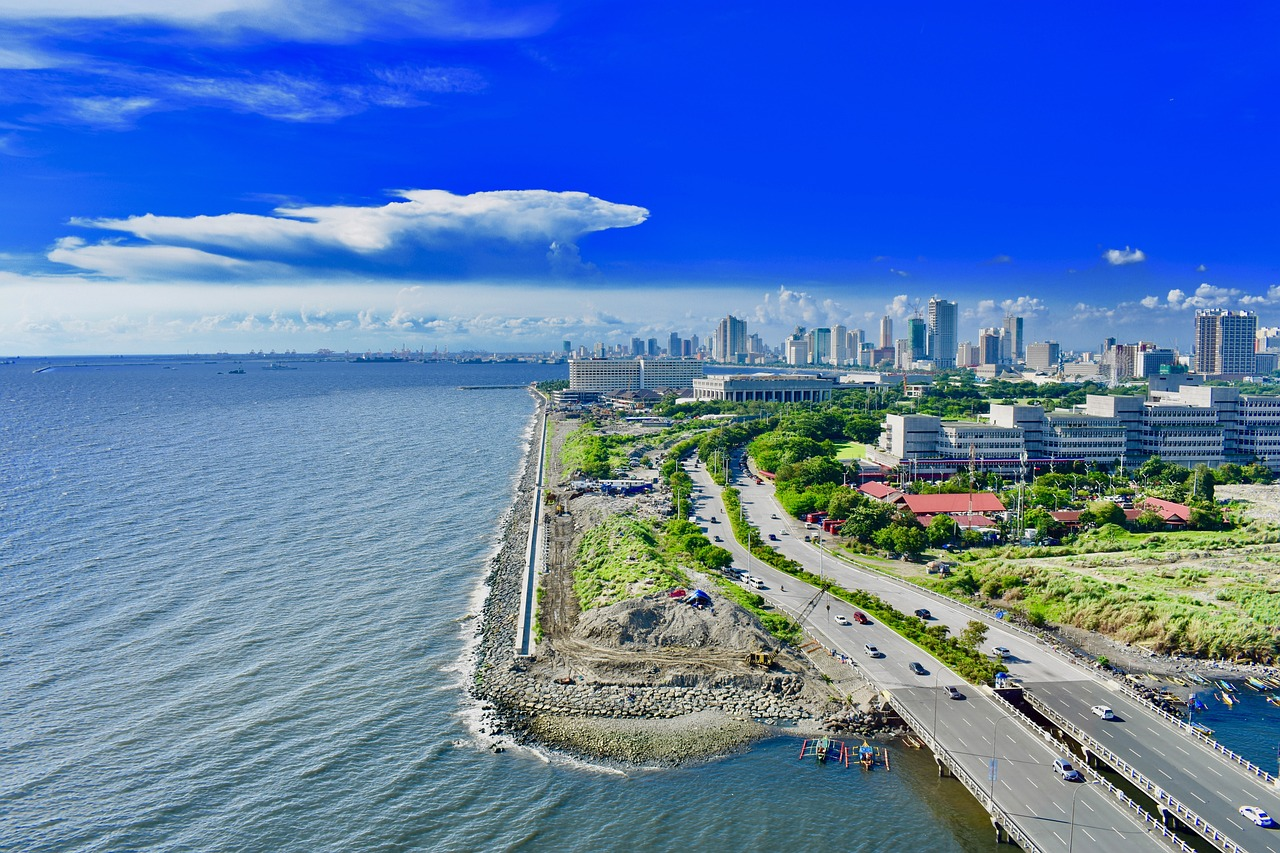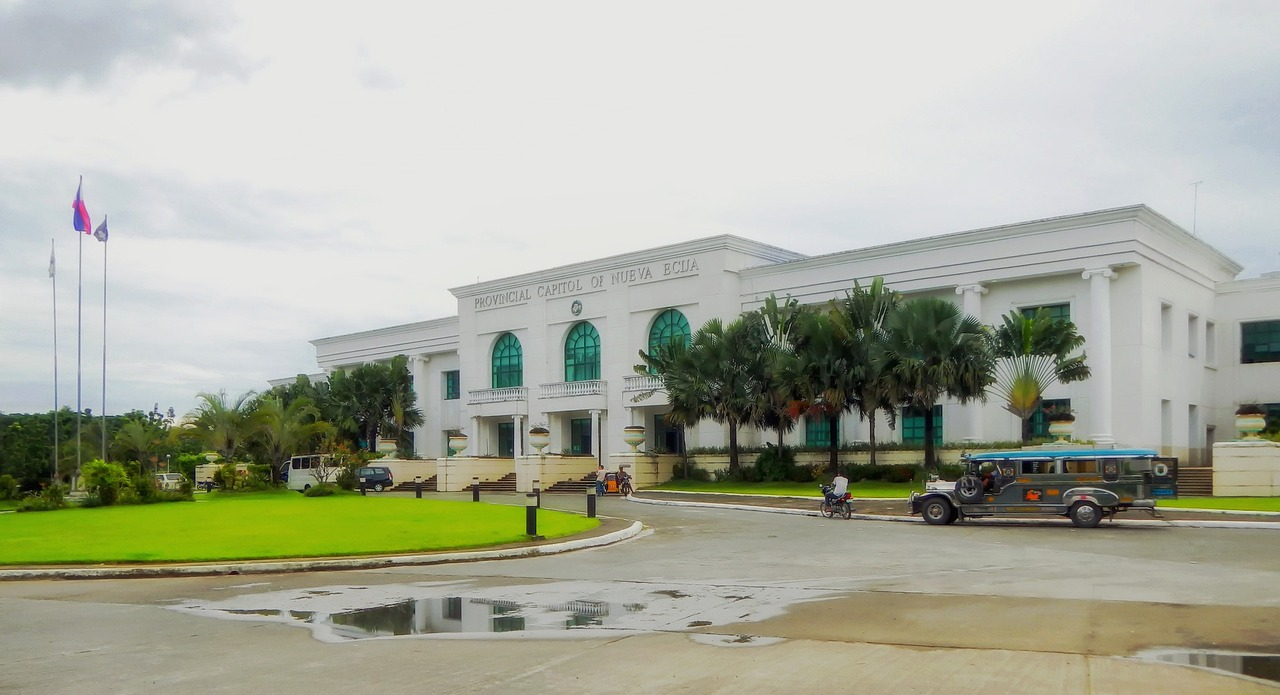Starting a business in the Philippines can be an exciting and rewarding endeavor. However, it’s important to navigate the legal and administrative requirements to ensure a smooth launch. This guide will walk you through the step-by-step process of starting a business in the Philippines, covering essential aspects such as business permits, government agencies, business structure, and more. Let’s dive in and explore the key factors to consider when you want to start a business in the Philippines.

Understanding the Business Environment in the Philippines
The Philippines, known for its vibrant culture and stunning landscapes, offers a promising landscape for entrepreneurs looking to establish their businesses. Before embarking on the journey of starting a business in the Philippines, it is crucial to understand the local business environment, the rapidly developing economy, the business opportunities available and the challenges involved, the level of government support for businesses, and the significance of obtaining the necessary business permit.
The Growing Economy of the Philippines
The Philippines boasts a growing economy with ample opportunities for business growth and investment. Its strategic location, young workforce, and increasing consumer demand make it an attractive market for entrepreneurs.
What are the challenges you can face?
While the Philippines offers numerous business opportunities, it’s essential to understand and overcome the challenges that come with operating in the local market. These challenges include competition, infrastructure limitations, bureaucratic processes, and cultural nuances.
Government Support for Businesses
The Philippine government recognizes the crucial role of businesses in driving economic development. To support entrepreneurs, various government agencies provide assistance programs, incentives, and resources to facilitate business growth and ensure compliance with regulations.
Choosing the Right Business Structure
Choosing the right business structure is a critical decision for entrepreneurs looking to establish a successful venture in the Philippines. The business structure not only determines the legal and operational framework of the business but also impacts aspects such as taxation, liability, and management control. Understanding the importance of selecting the appropriate structure is essential for navigating the business in the Philippines. Here are some of the common structures you can explore:
Sole Proprietorship
The sole proprietorship is the simplest and most common form of business structure in the Philippines. It is owned and managed by a single individual who assumes full responsibility for the business’s liabilities and obligations.
Partnership
Partnerships involve two or more individuals who share ownership and responsibilities for the business. Partnerships can be general partnerships or limited partnerships, offering different levels of liability and control.
Corporation
A corporation is a separate legal entity from its owners, offering limited liability protection. Establishing a corporation requires compliance with the Securities and Exchange Commission (SEC) regulations and is suitable for businesses with significant growth potential.
Cooperative
Cooperatives are member-owned and member-governed businesses, typically formed to meet the common economic, social, and cultural needs of their members. They operate based on the principles of self-help and mutual assistance.
Registering Your Business Name
Registering your business name is of utmost importance when starting a business in the Philippines. It is a crucial step in establishing your brand identity, ensuring legal compliance, and protecting your business from potential conflicts or infringements. Registering your business name is often a requirement for obtaining a business permit, and it is overseen by the Securities and Exchange Commission (SEC).
By registering your business name, you secure exclusive rights to use it, preventing others from using a similar name that could lead to confusion or dilution of your brand. It establishes credibility, builds trust with customers, and helps you stand out in the competitive business landscape of the Philippines.

Guidelines for Business Name Registration
When choosing a business name, it must be unique and compliant with the guidelines set by the Department of Trade and Industry (DTI) or SEC, depending on the chosen business structure. The name should not be misleading or similar to existing businesses.
Business Name Registration Process
The registration process involves submitting the necessary documents, such as accomplished application forms, valid identification cards, and payment of registration fees. The DTI handles business name registration for sole proprietorships, while the SEC manages it for partnerships and corporations.
Business Name Reservation
Prior to registration, you can reserve your chosen business name with the DTI or SEC for a certain period. This ensures that no one else can use the name while you complete the registration process.
Securing the Necessary Permits and Licenses
Securing the necessary permits and licenses is a critical aspect of starting a business in the Philippines. It ensures legal compliance, establishes credibility, and avoids potential penalties or disruptions to your operations. Various government agencies, such as the local government units and specific regulatory bodies, oversee the issuance of permits and licenses.
These permits may include business permits, environmental clearances, health and safety certifications, and industry-specific licenses. By diligently obtaining the required permits and licenses, you demonstrate your commitment to operating within the law, gain the trust of customers and partners, and create a solid foundation for long-term success in the dynamic business environment of the Philippines.
Business Permits and Licensing System
The Business Permits and Licensing System (BPLS) streamlines the permit application process in the Philippines. It consolidates various permits and licenses required by different government agencies into a unified system, simplifying the application and renewal procedures.
Mayor’s Permit
The Mayor’s Permit, also known as the Business Permit, is a primary requirement for operating a business in the Philippines. It is obtained from the local government unit (LGU) where the business is located and serves as proof of compliance with local regulations.
Barangay Clearance
A Barangay Clearance is a document issued by the barangay (village) where the business operates. It verifies that the business complies with barangay rules and regulations and is an additional requirement for obtaining a Mayor’s Permit.
Industry-Specific Licenses and Certifications
Depending on the nature of your business, you may need industry-specific licenses and certifications. For example, food establishments require permits from the Food and Drug Administration (FDA), while educational institutions need accreditation from the Department of Education (DepEd) or the Commission on Higher Education (CHED).
Registering with Government Agencies
Registering with government agencies is a crucial step when starting a business in the Philippines. It ensures legal compliance and allows you to avail of various benefits and services.
Key government agencies to register with include the Securities and Exchange Commission (SEC), which oversees the registration of corporations and partnerships; the Bureau of Internal Revenue (BIR), responsible for tax collection and enforcement; the Social Security System (SSS) and Philippine Health Insurance Corporation (PhilHealth), providing social insurance programs; and the Home Development Mutual Fund (Pag-IBIG Fund), offering housing and short-term loans.

Registering with these agencies ensures that you meet regulatory requirements, protect the rights and benefits of your employees, and operate your business in accordance with Philippine laws and regulations.
Securities and Exchange Commission (SEC)
The SEC regulates and supervises corporations, partnerships, and other business entities. It ensures compliance with corporate laws, handles business name registration for partnerships and corporations, and provides guidelines for the issuance of securities.
Bureau of Internal Revenue (BIR)
The BIR is responsible for tax collection and enforcement in the Philippines. Business owners must register with the BIR, obtain a Tax Identification Number (TIN), and fulfill their tax obligations, such as filing tax returns and paying taxes on time.
Social Security System (SSS)
The Social Security System provides social insurance programs, including retirement, disability, and health benefits, to employees in the private sector. Employers must register their employees and remit contributions to the SSS regularly.
Philippine Health Insurance Corporation (PhilHealth)
PhilHealth is the national health insurance program in the Philippines. Employers are required to register their employees and make contributions to PhilHealth, ensuring access to healthcare benefits for their workforce.
Home Development Mutual Fund (Pag-IBIG Fund)
The Pag-IBIG Fund is a mandatory savings program that provides housing loans, short-term loans, and other benefits to Filipino workers. Employers must register their employees and remit monthly contributions to the fund.
Complying with Tax Obligations
Complying with tax obligations is a vital aspect of running a business in the Philippines. It involves obtaining a Tax Identification Number (TIN) from the Bureau of Internal Revenue (BIR), understanding the various tax types and obligations, and ensuring accurate reporting and filing of tax returns. By complying with tax regulations, businesses maintain good standing with the BIR, avoid penalties and legal issues, and contribute to the country’s revenue generation and economic development.
Tax Identification Number (TIN)
Every individual or entity engaging in business or employment in the Philippines must obtain a Tax Identification Number (TIN). The TIN is used for tax-related transactions and serves as a unique identifier for taxpayers.
Understanding Tax Types and Obligations
Businesses in the Philippines are subject to various tax types, including income tax, value-added tax (VAT), percentage tax, and withholding tax. Understanding the applicable tax obligations and ensuring timely compliance is crucial to avoid penalties and legal issues.
Tax Reporting and Filing
Business owners must regularly file tax returns and accurately report their income and expenses. Compliance with tax reporting requirements, including the use of authorized accounting books and receipts, is essential to maintain good standing with the BIR.
Hiring Employees and Labor Laws

Hiring employees in the Philippines requires adherence to labor laws and regulations. It involves establishing clear employment contracts, ensuring compliance with minimum wage laws and mandatory benefits, deducting and remitting employee contributions, and prioritizing workplace safety.
Understanding labor laws set by the Department of Labor and Employment (DOLE) helps businesses maintain harmonious employer-employee relationships, protect the rights and welfare of employees, and create a positive work environment conducive to productivity and growth.
Employment Contracts and Agreements
When hiring employees, it’s essential to establish clear employment contracts and agreements that outline terms and conditions, wages, benefits, and working hours. These contracts should comply with the provisions set by the Department of Labor and Employment (DOLE).
Minimum Wage and Benefits
Employers must adhere to minimum wage laws and provide mandatory benefits, such as paid leave, social security contributions, health insurance, and retirement benefits. Familiarize yourself with the current minimum wage rates and benefit requirements applicable to your business.

Employee Contributions and Deductions
Employers are responsible for deducting and remitting employee contributions, including income tax, social security contributions, PhilHealth premiums, and Pag-IBIG Fund contributions. Compliance with these obligations ensures the well-being and protection of your employees.
Workplace Safety and Standards
It’s crucial to prioritize workplace safety by complying with occupational health and safety regulations. This includes maintaining a safe working environment, providing necessary safety equipment, conducting regular inspections, and implementing proper protocols for emergencies.
Opening a Bank Account for Your Business
Opening a bank account for your business is essential for effective financial management. It allows for efficient handling of transactions, separation of personal and business finances, and access to banking services tailored to business needs. When selecting a bank, consider factors such as account fees, transaction limits, online banking capabilities, and customer support. By having a dedicated business bank account, you can streamline financial operations, track income and expenses, and maintain transparent and organized financial records.
Selecting the Right Bank

Choose a reputable bank in the Philippines that offers suitable business banking services and accommodates your specific requirements. Consider factors such as account fees, transaction limits, online banking capabilities, and customer support.
Required Documents and Procedures
To open a business bank account, you typically need to provide documents such as your business registration papers, valid identification cards, proof of address, and tax identification documents. Contact your chosen bank to inquire about their specific requirements and procedures.
Managing Business Finances
Once your business bank account is established, it’s essential to maintain accurate financial records, track income and expenses, and separate personal and business finances. Implementing efficient bookkeeping practices and leveraging digital tools can streamline financial management.
Setting Up a Physical Location
Setting up a physical location for your business involves careful consideration of factors such as leasing or buying commercial property, zoning and building permits, and safety and environmental regulations. Evaluate the location’s suitability, accessibility, and alignment with your target market or industry requirements.
Obtain the necessary permits and clearances from the local government offices, ensuring compliance with zoning regulations, fire safety standards, and environmental guidelines. By setting up a suitable physical location, you provide a solid foundation for your business operations and create a conducive environment for employees and customers.
Leasing or Buying Commercial Property
Determine whether you will lease or buy commercial property for your business. Consider factors such as location, accessibility, zoning regulations, rental costs, and suitability for your specific industry or target market
Zoning and Building Permits
Ensure that your chosen property complies with zoning regulations and obtain the necessary permits from the relevant local government offices. These permits may include zoning clearance, building permits, fire safety certificates, and environmental clearances.
Safety and Environmental Regulations
Adhere to safety and environmental regulations to protect your employees, customers, and the environment. Implement appropriate safety measures, obtain necessary clearances, and comply with waste management and environmental protection guidelines.
Building a Strong Business Network
Building a strong business network is crucial for business growth and success. Engage with industry associations, chambers of commerce, and local business communities to expand your network, access resources, and stay updated on industry trends.

Attend networking events, trade shows, and conferences to connect with professionals, showcase your products or services, and seek collaboration opportunities. By actively participating in the business community, you can build relationships, gain insights, and unlock potential partnerships, mentorship, and business opportunities that contribute to the long-term success of your business.
Joining Industry Associations and Chambers of Commerce
Engage with industry-specific associations and chambers of commerce to connect with like-minded professionals, access valuable resources, and stay updated on industry trends and developments. Networking within these communities can lead to business opportunities and partnerships.
Networking Events and Business Conferences
Attend networking events, trade shows, and business conferences to expand your network, learn from industry experts, and showcase your products or services. These events provide a platform for building relationships, gaining exposure, and staying informed about market dynamics.
Engaging with Local Business Communities
Actively participate in local business communities, both online and offline. Engaging with fellow entrepreneurs, sharing experiences, and seeking advice fosters collaboration and opens doors to potential partnerships, mentorship opportunities, and valuable insights.
Conclusion
To start a business in the Philippines, you need careful planning, compliance with legal regulations, and a thorough understanding of the local business environment. By following the steps outlined in this comprehensive guide, you’ll be well-prepared to establish and grow your business successfully.
Remember, it’s essential to consult with professionals and government agencies to ensure that you meet all requirements and stay on top of any regulatory changes. Embrace the opportunities that the Philippines has to offer and embark on your entrepreneurial journey with confidence.
Get a guided new business plan today!
Unlock your business’s full potential with New Business Centre! Our expert-led training programs and customized Action Plans will guide you toward success. Sign up for free today and start your journey to a thriving business!





